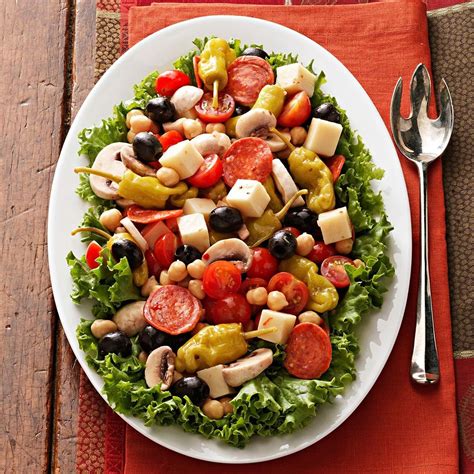Discover the richness of Mediterranean cuisine with ingredients, cooking techniques, health benefits, and delicious recipe ideas for a healthier lifestyle.
Exploring Mediterranean Cuisine
Contents
The Mediterranean cuisine is famous for its fresh and flavorful ingredients that are not only delicious but also packed with health benefits. This type of cuisine is heavily influenced by the countries that surround the Mediterranean Sea, such as Greece, Italy, and Spain.
One of the key elements of Mediterranean cuisine is the use of olive oil in many dishes. This healthy fat is used in place of butter and other oils, and it adds a rich and distinctive flavor to the food. Other staple ingredients in Mediterranean cuisine include fresh vegetables, whole grains, fish, and legumes.
When it comes to flavors, Mediterranean cuisine often incorporates garlic, herbs, and spices such as basil, oregano, and rosemary. These ingredients not only add depth and complexity to the dishes, but they also offer antioxidant and anti-inflammatory benefits.
Exploring Mediterranean cuisine is a journey through the diverse flavors and healthy ingredients that make this style of cooking so popular. Whether you’re a fan of seafood, vegetarian, or meat-based dishes, there is a wide variety of recipes to explore and enjoy.
Ingredients for Mediterranean Dishes
The ingredients used in Mediterranean dishes are predominantly fresh and flavorful, reflecting the bountiful produce available in the region. Olive oil, a staple of Mediterranean cooking, is used liberally to add richness and depth to dishes. Other essential ingredients include flavorful herbs and spices such as oregano, basil, garlic, and lemon. Tomatoes, cucumbers, and bell peppers are commonly used in salads and as accompaniments to main dishes. Feta cheese, olives, and chickpeas add a distinctive Mediterranean flavor to many recipes.
Incorporating quality ingredients into your Mediterranean dishes is key to achieving that authentic taste and flavor. To get the most out of your dishes, prioritize using fresh, locally sourced produce and high-quality olive oil. Fresh herbs, such as oregano and basil, should be used in abundance to add depth and aroma to your recipes. When selecting cheeses and legumes, opt for imported feta and high-quality olives and chickpeas to get an authentic Mediterranean flavor.
An important aspect of Mediterranean cuisine is the use of fresh, seasonal ingredients. Incorporating seasonal vegetables and fruits like tomatoes, artichokes, and figs will ensure your dishes are bursting with flavor and nutrients. Utilize a variety of colorful vegetables to add depth and visual appeal to your dishes.
When preparing Mediterranean dishes, pay close attention to the quality of your ingredients as they are the building blocks of your recipes, and can make all the difference in taste and texture. By using fresh, flavorful, and high-quality ingredients, you can create authentic, delicious Mediterranean meals that are both satisfying and nutritious.
Cooking Techniques and Tips
Mediterranean Harvest Recipes
When it comes to cooking Mediterranean dishes, there are a few key techniques and tips to keep in mind. One of the essential cooking methods in Mediterranean cuisine is grilling. Grilling brings out the natural flavors of ingredients such as vegetables, seafood, and meats, adding a smoky and charred taste that is characteristic of many Mediterranean dishes.
Another important cooking technique is marinating. Marinating ingredients in a mixture of olive oil, herbs, and citrus juices not only adds flavor but also helps to tenderize the meat or seafood. This is often done before grilling or broiling to enhance the taste and texture of the dish.
One tip for cooking Mediterranean dishes is to use fresh and seasonal ingredients whenever possible. This ensures that you are getting the best flavor and nutritional value from your dishes. Choosing local, in-season produce and seafood is a great way to capture the essence of Mediterranean cuisine.
Additionally, incorporating healthy fats such as olive oil and flavorful herbs and spices like oregano, garlic, and za’atar can take your Mediterranean dishes to the next level. These ingredients not only add complexity to the flavor of the dish but also offer various health benefits.
Lastly, the cooking style in Mediterranean cuisine often involves simple preparation and minimal processing of ingredients. This allows the natural flavors to shine through and ensures that the nutritional value of the food is preserved. Whether it’s a simple grilled fish with lemon and herbs or a vibrant salad with fresh vegetables and olives, simplicity is key in Mediterranean cooking.
Health Benefits of Mediterranean Diet
The Mediterranean diet is not only renowned for its delicious flavors and varied ingredients, it also offers a wide array of health benefits that can positively impact your overall well-being. This dietary pattern is high in fruits, vegetables, whole grains, legumes, and olive oil, and moderate in fish, poultry, and wine.
One of the key health benefits of the Mediterranean diet is its ability to reduce the risk of heart disease and stroke. The high consumption of monounsaturated fats found in olive oil, as well as the omega-3 fatty acids found in fish, contribute to lower levels of LDL (bad) cholesterol and higher levels of HDL (good) cholesterol, ultimately reducing the risk of cardiovascular diseases.
In addition to promoting heart health, the Mediterranean diet has also been linked to a reduced risk of certain cancers, such as breast cancer and colorectal cancer. The abundance of antioxidants and anti-inflammatory properties found in fruits, vegetables, and olive oil can help protect cells from damage and inhibit the growth of cancerous cells.
Furthermore, the Mediterranean diet has been associated with a lower incidence of neurodegenerative diseases, such as Alzheimer’s and Parkinson’s. The combination of antioxidants, healthy fats, and anti-inflammatory compounds in this diet can help protect the brain from cognitive decline and improve overall brain function.
Overall, following a Mediterranean diet can lead to better health outcomes, including weight management, reduced risk of chronic diseases, and improved longevity. By embracing the delicious and wholesome foods of the Mediterranean region, you can nourish your body and enjoy a myriad of health benefits.
Delicious Mediterranean Recipe Ideas
If you’re looking for some delicious Mediterranean recipe ideas to try at home, you’ve come to the right place. The Mediterranean diet is known for its use of fresh, wholesome ingredients and simple but flavorful cooking techniques. From colorful salads to hearty stews, there are plenty of Mediterranean dishes to explore. Whether you’re a fan of seafood, vegetables, or grains, there’s something for everyone to enjoy.
One classic Mediterranean dish to try is Greek salad, made with ripe tomatoes, crunchy cucumbers, tangy feta cheese, and briny olives, all dressed in a simple olive oil and oregano vinaigrette. This light and refreshing salad is perfect for a summer day or as a side dish for a grilled meal.
For a heartier meal, consider making a traditional Mediterranean moussaka. This layered casserole is made with eggplant, spiced ground meat, and a creamy bechamel sauce. It’s a comforting dish that’s full of flavor and perfect for a cozy night in.
If you’re in the mood for seafood, give Spanish paella a try. This vibrant and colorful dish is made with saffron-infused rice, tender shrimp, and a variety of other seafood and meats. It’s a show-stopping dish that’s perfect for entertaining or a special family meal.
Regardless of which Mediterranean recipe you decide to try, you can be sure that it will be full of fresh, vibrant flavors and good-for-you ingredients that will leave you feeling satisfied and nourished.













